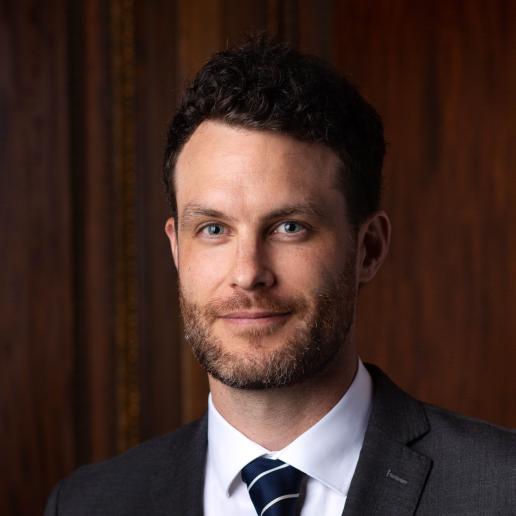Placement: Stanford University
Mentors: Sara Singer, M.B.A., Ph.D., Professor of Medicine, Stanford University School of Medicine; Professor, Stanford Graduate School of Business (by courtesy); Professor, Freeman Spogli Institute for International Studies (by courtesy); Stanford Health Policy Associate
Nirav Shah, M.D., M.P.H., Senior Scholar, Clinical Excellence Research Center; Adjunct Professor, Medicine — Primary Care and Population Health, Stanford University School of Medicine
Project: Unlocking Clinician Leadership and Innovation Potential: Transforming Lead Clinicians into Clinician Leaders
Jonathan Hoogerbrug, M.D., is a 2022–23 New Zealand Harkness Fellow in Health Care Policy and Practice. Over the past 10 years, he has had diverse clinical experience both in hospital and community-based settings and is currently a general practitioner at a nonprofit Māori health provider in Auckland. Hoogerbrug has worked as a clinical informatics analyst and senior clinical advisor and is now a principal clinical advisor for the National Immunisation Programme at the Ministry of Health New Zealand. Since the outset of the COVID-19 pandemic, he has been a clinical leader in New Zealand’s response at the regional and national levels, including in the development and implementation of operational and digital products nationwide, such as the national digital COVID-19 Immunisation Register. Hoogerbrug received his M.D. from Otago University, a Diploma in Paediatrics from the University of Auckland, and a CHIA (professional certification in health informatics) from the Australasian Institute of Digital Health.
Project Overview: The COVID-19 pandemic has highlighted the importance of fostering expert clinical leaders and innovators. These skills are essential for improving teams’ effectiveness, organizational performance (both operational and financial), and progressing initiatives in quality and safety.
While leadership programs are prioritized in global corporations, business schools, and military academies, opportunities in health care remain relatively limited. Furthermore, traditional educational approaches, workforce constraints, hypercompetitive cultures, and a lack of formal training can hinder clinical leadership development in many career paths. This leaves the next generation of senior clinicians less prepared to lead in vital frontline, middle management, and executive roles.
This research aims to explore the key barriers and enablers to improving the development of clinical leadership and innovation. A variety of stakeholders will be reviewed, including academic institutions, health care providers, policymakers, and the private healthcare industry. This research will be completed through a review of academic literature, case studies, and interviews with key informants.
